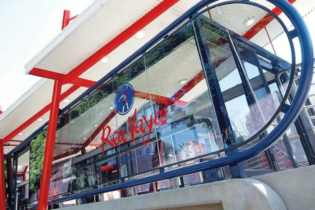The Dar es Salaam-Isaka-Kigali/Keza-Musongati railways project get a new push after the East African Community (EAC) and African Development Bank (AfDB) signed a grant agreement for the first disbursement of $428,000 out of an anticipated $1.8million for the railway sector enhancement project.
The project is jointly financed by grants from the Indian Trust Fund and the New Partnership for African Development (NEPAD) infrastructure preparation project facility, both hosted by the bank. The signing ceremony, which was held here on Friday, was witnessed by the EAC Secretary General Richard Sezibera and the AfDB Regional Director for East African Resource Centre (EARC) Gabriel Negatu. Sezibera hailed the Indian government for providing the $428,000 through the India-Africa Economic Cooperation to support the EAC in the development of the capacity to spearhead the development of railways in the region. He noted that the grant will go a long way in making available the required capacity at the Secretariat to impact the EAC Railway Master Plan for priority projects. “This amount will enable better coordination with the Dar es Salaam-Isaka-Kigali/Keza-Musongati railways project secretariat and to undertake a feasibility assessment towards the eventual establishment of the EAC Railways Authority,” said Sezibera soon after sealing the deal. He further noted that the support by the bank and Japan International Cooperation Agency (JICA) on the development of an EAC Maritime and Ports Development Strategy will put the needed focus on the development of inland waterways transport. The EAC boss requested the bank and the Indian government to support the feasibility and investment preparatory studies that will be required for the prioritised projects in the East African Railways Master Plan. The estimates for the realisation of the master plan projects range from $5 to $29 billion depending on the gauge choice and the right of way. He said this translates into huge costs at the feasibility, investment preparations and design stages where the region needs AfDB and India support. Sezibera explained that railways currently are contributing hardly 10 percent of the required transportation capacity for heavy and bulky freight despite attempts at concession the network. “This situation is causing heavy stress and shortened lifespan for the EAC roads with implications on maintenance and faster reconstructions,” he said.He said EAC is committed to fast tracking the fulfillment of the grant pre-disbursement condition on the opening of a special account as provided for in the grant agreement to be able to access the financing faster.
For his part, Negatu said the backbone of formal intra-EAC trade is located in the two overland road and rail routes; the northern and central corridors starting from the ports of Mombasa and Dar es Salaam and connecting to the border of the Democratic Republic of Congo. This is along with a north-south road link through Namanga on the Kenya-Tanzania border. “These corridors are critical for transit of EAC imports from outside and its goods exports beyond the region,” he said, explaining that the objective of the project therefore is to improve efficiency and modernize the railway sector in the EAC. “The project will commence in June 2012 and end in June 2014 with the anticipated budget of $1.8m which is composed of harmonisation of the regulatory and legal framework, pre-feasibility and feasibility of missing railway links and the creation of a regional coordination unit,” he explained. Negatu said the study will allow member states of the EAC to develop and improve efficiency of the railway sector as the whole transportation sector is characterized by very high road transport costs of bulk goods by trucks which impedes trade and inflate prices. “Further we have seen serious adverse impacts in the form of deterioration of roads and air pollution, when the project is completed, it will enable a large scale shift of the transportation modalities of long-haul bulk goods from roads to the less costly railways,” he said. The official added that lowering transportation costs and improving efficiency will significantly contribute to increased economic growth, enhanced trade and improved quality of life for the 133 million people by reducing costs of goods and services. Source: http://www.ippmedia.com/





